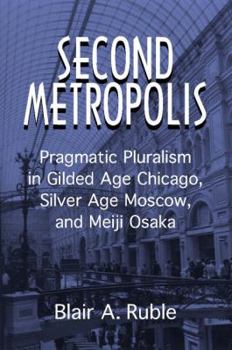Second Metropolis
Select Format
Select Condition 
Book Overview
By comparing North America's, Russia's, and Japan's second cities--Chicago, Moscow, and Osaka--Second Metropolis discloses the extent to which social fragmentation, frequently viewed as an obstacle to democratic development, actually fostered a pragmatic pluralism that nurtured pluralistic public policies. Such policies are explored through six case studies that illustrate how even those with massive political and economic power were stymied by the complexity of their communities. These three cities, though the products of very different nations and cultures, shared an important experience of inclusive politics during an era of extraordinary growth and social diversity.
Format:Hardcover
Language:English
ISBN:0521801796
ISBN13:9780521801799
Release Date:May 2001
Publisher:Cambridge University Press
Length:484 Pages
Weight:1.71 lbs.
Dimensions:1.4" x 6.3" x 9.4"
Customer Reviews
1 rating
Stimulating comparison
Published by Thriftbooks.com User , 22 years ago
As a Japanese living near Osaka, the topic -- comparison between Chicago, Moscow and Osaka is very stimulating. Although written in a highly academic style, this book is easy to read for non-academia, with a lot of historical pictures. The authorfs main concern is to put Moscow (and Russia) in a comparative perspective, but at the same time he succeeded in portraying the dynamic transformation of modern urban society vividly. I recommended this book to many friends in my country. Some day we would like to have translated version of this book for Japanese market. Many of us are fed up with situation Japan tends to be treated as overly unique or exceptional by observers Japanese and foreign alike. Our country and culture may be unique, but it is just as unique as most of the nations in the world. It seems to me that the author likes to say same thing to Russia. He successfully presented an interesting case by putting the three great non-capital cities side by side.





